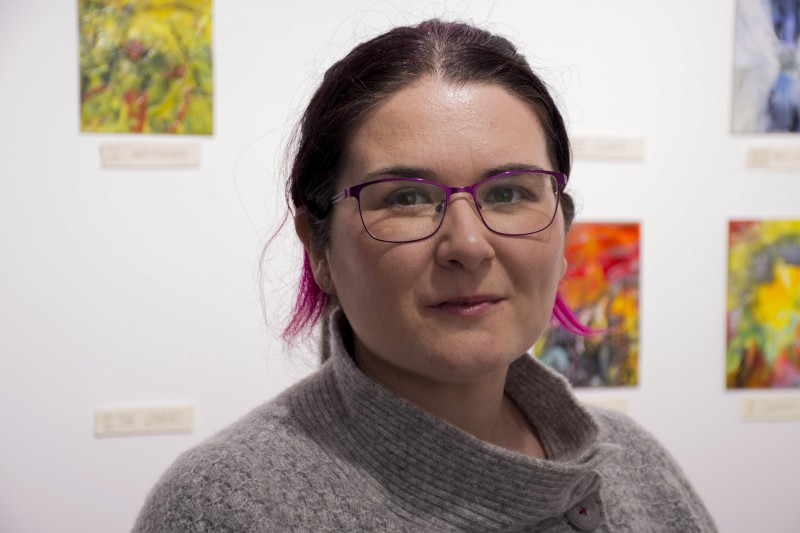For Dr Ann Luce, her extensive work in the sensitive communication around suicide began when her partner Richard died by suicide in 2006.
Throughout her career, Ann has been driven by her desire to prevent suicide and use her expertise as a communicator to play an active role in protecting life.
Dr Luce, an Associate Professor in Journalism and Communication at BU, has had a long and successful career in both journalism and academia.
Using the insight of her research, fuelled by personal experience and her professional practice working with those in public health and the NHS, Dr Luce is uniquely placed to offer insight to help other communicators in the way they talk about suicide.
“Research can be very theoretical, but I’m a practitioner - it isn’t just about the talk, it’s about the action,” said Dr Luce, who is also UK national representative to the International Association for Suicide Prevention.
The role of the media
According to the UK’s Office for National Statistics, there are 10.1 suicides per 100,000 people in the UK. The reporting of suicide in the media can play a vital role in the way that these deaths are reported.
“Reporting on suicide is a particularly sensitive task for journalists, requiring them to display considerable tact and empathy while ensuring they fulfil their professional duty with comprehensive, accurate coverage within deadlines,” explained Dr Luce.
“It never sat well with me that journalists were blamed for suicide, the ‘media is to blame’ trope just doesn’t work for me. As an academic, it’s my responsibility to use my research to fix the problem, so that’s what I’ve done. I work with journalists now, and communication specialists to educate them on how to responsibly report and talk about suicide.”
Dr Ann Luce
Associate Professor in Journalism and Communication
It saved lives and that blows my mind. If I do nothing else in my life, that was extraordinary.
The Suicide Reporting Toolkit
In 2020, the Suicide Reporting Toolkit was released as a resource for journalists and journalism educators. Dr Luce worked alongside her colleague Dr Sallyanne Duncan at the University of Strathclyde on the toolkit, which provides a simple and clear framework to help those communicating deaths by suicide in a sensible and responsible way.
The Suicide Reporting Toolkit embeds five sets of global media reporting guidelines, making the toolkit truly accessible for journalists around the world. It advises journalists on ways to cover stories of people taking their own lives while avoiding sensationalism, stigmatisation and putting other lives at risk.
The toolkit also provides information around judicious use of statistics and social media posts, as well as omitting excessive details on the method or location of a suicide and offering details on sources of support.
The aim was to create a tool that was embedded in storytelling and the news process to make it easier for journalists to report responsibly as they produce content. It also included guidelines for ethical teaching to students, and self-care for journalists who cover these emotive stories.
Since its launch, the toolkit has been widely used across the globe. It has been used by police in Malaysia to train officers in speaking to journalists about suicide, work that was subsequently praised by the Malaysian Assembly for its success.
The World Health Organisation has supported the dissemination of the principles created in the toolkit, as well as the Dart Centre for Journalism and Trauma and the Ethical Journalism Network here in the UK. The toolkit was highly commended by the Times Higher Education at their 2021 Awards.
Supporting suicide prevention strategies
Closer to home, Dr Luce has worked with Dorset Healthcare to help them understand issues of staff suicide amongst their workforce. She has also played an active role in helping to de-escalate suicide clusters across the UK, reported to have saved 20 lives in Bournemouth in 2019.
Subsequently, Dr. Luce’s work helped to kick off a Pan-Dorset working group, with the remit to think more strategically about how to prevent loss of life by suicide in Dorset, through better access to care, and better communication of suicide in the region.
Martin R White, Health and Wellbeing Programme Manager, Public Health England said: “Dr Luce’s contributions and research findings have contributed to saving lives by supporting change in the system-wide practices and thinking around suicide sites and suicide prevention in Dorset.”
Dr Luce said: “I had been active in the Bridgend suicides in Wales in 2008, so I knew how clusters worked and I was able to see it, to see that locally, there was no sense of urgency, that people were dying, and it was preventable.
“That was the big thing - educating people about the urgency of it, and that something can be done to help stop people dying. To be able to work with organisations across Dorset to create a strategy that was then implemented, to put it into action, to have it operationalised, and to have the result where 20 lives were saved – it was the application of everything I’ve done.
“It saved lives and that blows my mind. If I do nothing else in my life, that was extraordinary.”
The Suicide Reporting Toolkit can be freely accessed at: https://www.suicidereportingtoolkit.com/
For more information or advice about suicide prevention visit: https://www.samaritans.org/
 Dr Ann Luce
Dr Ann Luce